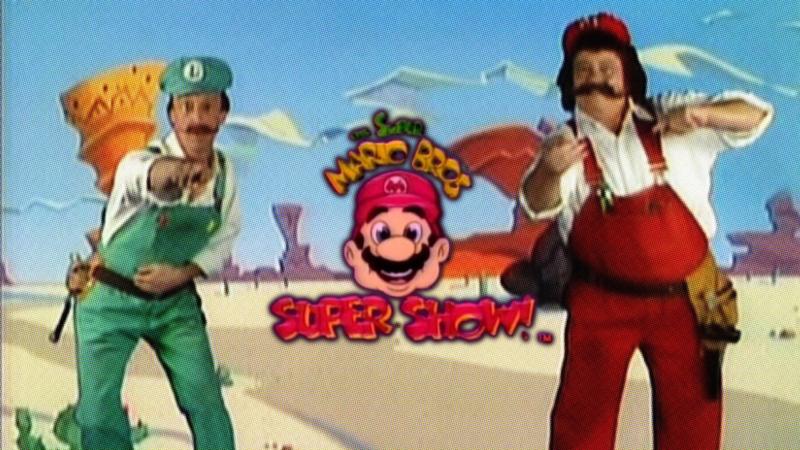 I didn’t grow up with anime. In fact, I didn’t grow up with television shows at all. Sure, I had shows I watched as a child–Voltron, Super Maro Bros Super Show, He-man. But I didn’t grow up with them as many have with anime. Anime like Naruto and Bleach grow with you. The protagonist starts as a whiny, annoying kid at the same time you are a whiny, annoying kid. As you grow into a teen and start facing the social pressures of dating, relationships, and approaching adulthood, so too does your anime hero. Finally, many anime heroes follow you into marriage and full-on adulthood.
I didn’t grow up with anime. In fact, I didn’t grow up with television shows at all. Sure, I had shows I watched as a child–Voltron, Super Maro Bros Super Show, He-man. But I didn’t grow up with them as many have with anime. Anime like Naruto and Bleach grow with you. The protagonist starts as a whiny, annoying kid at the same time you are a whiny, annoying kid. As you grow into a teen and start facing the social pressures of dating, relationships, and approaching adulthood, so too does your anime hero. Finally, many anime heroes follow you into marriage and full-on adulthood.
I didn’t have that.
Now, I don’t write this to make you feel pity or to whine about this. Rather, I want those of you who grew up watching shows like Naruto to appreciate the experience.
Growing up with anime shares similarities with growing up with folklore. Many folktales contain stories that hearers appreciate only as they grow older. Growing up with such stories helps you navigate events as you come to them. For example, Naruto experiences awkwardness toward Hinata and Sakura just as many of its viewers begin to experience that awkwardness. Experiencing this with a protagonist helps you feel less self-conscious. Knowing others go through the same isn’t the same as watching it unfold in a story where it provides possible solutions.
Stories Teach Best
Believe it or not, fiction provides the best means of learning. Characters can make mistakes and face the consequences of decisions we too may have to make. Fiction that grows up with you helps even more. Characters will face the same challenges as you encounter them, providing timely guidance. It seems silly to say an anime like Naruto can provide guidance, but for most of human history that was what stories did. It wasn’t until fairly recently our education system developed this silly idea that learning has to be dry and mind-numbingly boring. We remember the shocking and the funny easier than facts and figures. We remember stories! The Greeks studied the Illiad and the Odyssey. The Japanese studied the Tale of Genji.
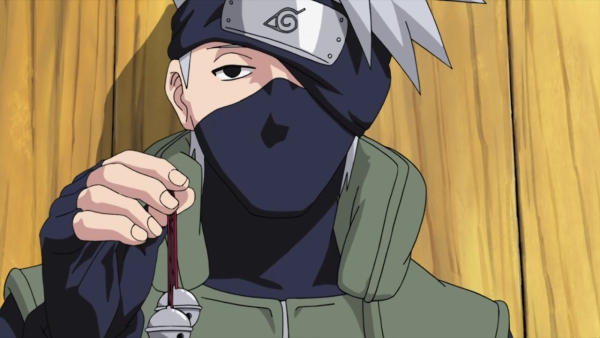 Today we segregate entertainment from learning. Today’s fiction offers entertainment and not much in the way of guidance or lessons. Although there is some great fiction that still do. Television shows, our modern version of folktales, offer tripe for the most part. Stories don’t have to moralize to teach lessons. Naruto, for example, rarely sermonizes outside of Kakashi’s lectures. Instead, the anime uses events and the actions of the characters to provide examples of moral behavior: loyalty, stick-to-itness, and the like. If you read Odyssey, you will see a similar method. Likewise, folktales teach in indirect ways, such as this short folktale:
Today we segregate entertainment from learning. Today’s fiction offers entertainment and not much in the way of guidance or lessons. Although there is some great fiction that still do. Television shows, our modern version of folktales, offer tripe for the most part. Stories don’t have to moralize to teach lessons. Naruto, for example, rarely sermonizes outside of Kakashi’s lectures. Instead, the anime uses events and the actions of the characters to provide examples of moral behavior: loyalty, stick-to-itness, and the like. If you read Odyssey, you will see a similar method. Likewise, folktales teach in indirect ways, such as this short folktale:
In Wasedochi, there is a small persimmon tree that never bears any fruit. Sometime in the 1150s, there was a battle between the Minamoto and Taira families, and many warriors died. It is said that his persimmon tree was planted on top of the mound where the corpses of the soldiers were buried. Legend has it that this is why, even though the souls of these soldiers make the tree’s flowers bloom, there is never any fruit.
The tale speaks about a conflict that lasted several decades between the Minamoto and Taira families. The conflict eventually erupted into the Genpei War. The skirmishes before the war ended with dead on both sides and neither side gained anything. While samurai considered the battles and heroics beautiful, they ultimately didn’t matter. In other words, they didn’t bear fruit.
Mistakes of Modern Teaching
 American teaching methods suck. They focus too much on tests and textbooks. While there is a place for textbook learning, it’s tough to retain that information. However, if a story features the information, we are more likely to remember it. This is especially true if the information helps the hero. I’m sure many of you remember Naruto’s jujitsu hand gestures. Why? Not only did you think they were cool, but you remembered them because they helped the hero. You probably remember the elemental attributes (which are based on Chinese and Japanese lore) too. And the memory comes effortlessly. For those of us who grew up watching MacGyver–yeah, I’m really dating myself here–we remember many of the physics lessons that helped him get through his jams.
American teaching methods suck. They focus too much on tests and textbooks. While there is a place for textbook learning, it’s tough to retain that information. However, if a story features the information, we are more likely to remember it. This is especially true if the information helps the hero. I’m sure many of you remember Naruto’s jujitsu hand gestures. Why? Not only did you think they were cool, but you remembered them because they helped the hero. You probably remember the elemental attributes (which are based on Chinese and Japanese lore) too. And the memory comes effortlessly. For those of us who grew up watching MacGyver–yeah, I’m really dating myself here–we remember many of the physics lessons that helped him get through his jams.
We remember information based on context. Without context that matters, we can’t remember, and tests really don’t matter. Tests measure the ability to take a test. How did the world of Naruto measure performance? Through real-life application of their ninja skills. Barring ninja fights, stories provide a framework to help us learn information.
Modern teaching, at least in the United States, focuses on getting the right answer. Well, reality doesn’t typically have right answers. It has actions and consequences. Multiple jujitsu can potentially win a fight. Teaching should impart how to think instead of how to arrive at a correct answer. Again, stories provide a way of teaching this. In many stories, the thought processes of the hero is available to the reader. Even more important, these thought processes don’t always result in a victory. Sometimes there is no correct answer. But the thought processes behind a hero’s failure helps us avoid the same faulty thinking. Naruto’s thinking matures as the anime progresses. We can see his mistakes in logic and learn from them.
Fiction provides an important method for learning, one often ignored. Sure, schools analyze Shakespeare and Homer, but analyzing isn’t the same as growing up with them. Perhaps schools should consider analyzing Naruto or Bleach or Sailor Moon for lessons. Many of you grew up with these stories and already have the lessons deep within you. Examining these anime would drive home the importance of fiction as a way of educating people. History and other dry facts can be woven into the discussion. You are more likely to remember the Japanese Iga clan that way. Such a lesson would help students learn how to think rather than merely seek a right answer. Speculative writing that merges the world of Naruto with the Sengoku period of Japanese history doesn’t have a right answer, but it does teach students how to think.
The Advantage of Growing up with Anime
Growing up with anime gives you unique guidance that I didn’t get to experience. Characters grew with you close to the same pace. After all, the Naruto manga ran from 1999 to 2014. That’s 15 years. The anime ran from 2002 to the present, or 16 years as of this writing (including Boruto). Growing up with a story like this gives you a specific framework that teachers can leverage, or you can leverage for yourself. Often, what the characters struggle with align what you struggle with. In that way, you don’t feel as isolated.
A long-running story like Naruto or Dragonball Z shapes some of your most formative years. From 10-21 or so, you are shaping your identity. Stories shape identity far better than any textbook. Heroes matter. They instill values within us, values that ingrain into our bones. I know, I am in danger of being hyperbolic, but stories really do matter that much. They shape how we think about the world. Stories teach as no other method can. It isn’t an accident that Jesus, Buddha, and other spiritual teachers used short stories to share their messages. They understood how stories worm into our minds and souls.
As I watch Naruto and Dragonball Z now, I envy those who grew up with them. They provide great entertainment, great lessons, and great role models. They are not without their problems, nor could either be considered high literature. But they are stories that shape character, and teachers would do well to leverage stories like them.

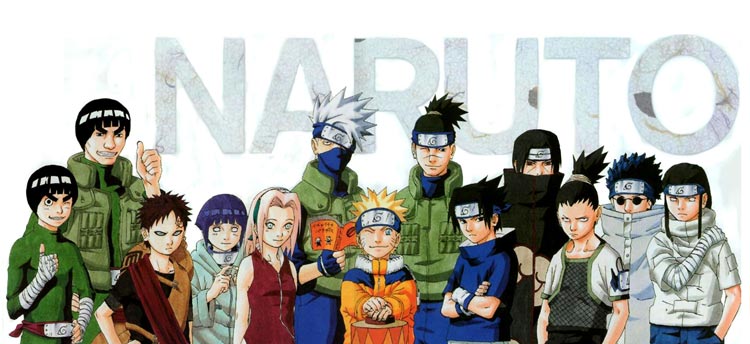

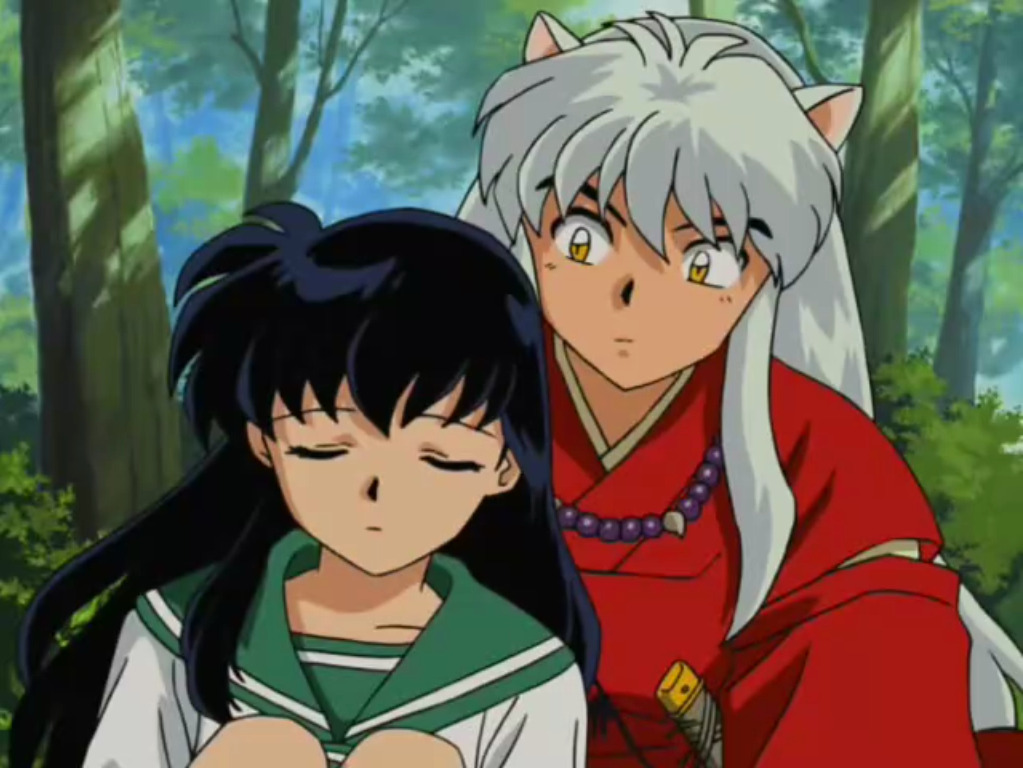
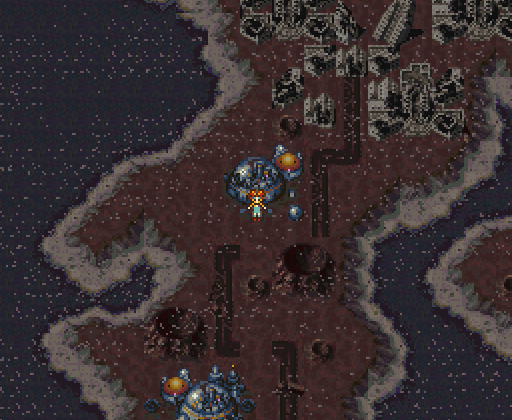
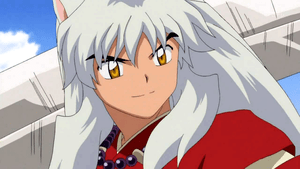
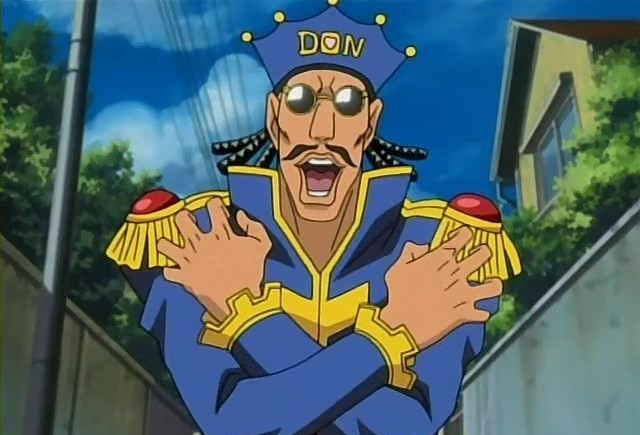
I just found your post reacently and it was an interesting read. As a teacher I do understand what you mean about the focus on rote memory, lecture, and testing. I have also seen first hand the focus grades by students and parents, and the problems that can create. You do have a point about learning through stories and it can be a great help in certain subjects, but I have found it hard to use that sort of technique as a science teacher. That being said I have still been able to incorporate anime into my classroom and have a section of my blog dedicated to that.
Science is a hard topic for story-based teaching. Some STEM competencies give you more room for story-based learning, such as designing a story for a LEGO Mindstorm robot. How have your students responded to anime in the classroom?
I’m in the hard sciences and don’t have many chances to get into the tech side of stem with robots and such. My students have tended to enjoy it because its tied directly to teaching, like using a scene in Naruto to explain how viruses work, or memory and types of amnesia in Promised Neverland and the Memorandum of Kyoko Otekagami.
I’m glad you’ve found a way to tie those stories with the hard sciences. My library staff often comes to me with questions about anime and manga after working at school events. Even in small towns, students use anime as a point of reference. Of course, for us that means middle schoole students wanting their book club designed like Doki-Doki Bookclub haha.
Not sure about what you mean by flash and bang but if it means sex and violence then I think it doesn’t sell better than substance most of the time.
Take for instance the movies created in high quality by Disney and Marvel duo. Most of their shows like Maleficent, Star Wars (at least episodes 1 through 6 are much better than the new ones), Spiderman (the first movie with Toby McGuire as the lead is full of moral lessons). There’s also Wreck It Ralph and the Incredibles. While the Incredibles. Not to mention also DC’s Wonderwoman. These are box office hits. I don’t think any of those pure sex and violence can top any of these in terms of Net profit.
Thus, there are still hope for quality producers and writers out there. It doesn’t have to be sex and violence all the time. As long as they put their full effort into the quality, they definitely can produce shows that not only sells to the public but also delivers valuable messages to the viewers especially to the young ones.
By flash and bang, I meant spectacle without substance, like the new Transformer films.
People will pay for quality. You make good examples. However, as much as I dislike the fact, the largest section of storytelling is claimed by pulp romance with publishers like Harlequin dominating the genre. It says something that the largest slice of book sales goes to fast, easy-to-consume escapism that often lacks a moral lesson.
That’s why I believe responsible writers and producers hopes are still alive. All they have to do is to figure out what are stuffs that attracts viewer’s attention? As you have mentioned it and I definitely agree with it, it’s mostly the spectacles and escapism. the stuff like for instance, there is this magical, mysterious character. Or this beautiful fairy like lady. Stuffs like that. I believe those are what you mean by escapism. These adds flavors to the show. Without it you wouldn’t get their attention focused on you. It’s more just like reading a textbook in school. Boring, No entertainment values. Responsible writers and producers are those that give their utmost effort in providing the right entertainment as well as sending the right message to the audience.
Storytelling and movie production is like preparing a meal in a school canteen. If you don’t put effort in adding the right ingredients and flavors into your nutritious food, the kids will just choose the junk foods over your products. In the end the junk would sell better than your nutritioous food.
Hope this methaphor illustrates it more clearly.
The way I see it, as I briefly read the summary of the novel ” “The Tale of Genji,”, it is about a story of a noble person from his youth until the day he died.
This story is well written, and it seeks to teach lessons through depicting all the misguided actions of the main character and illustrates the outcome of those actions.
Like for instance, Genji’s lust for women is so very beyond control that he even cheated on own father taking his stepmother as his lover. But, although he didn’t suffered a dire consequence from it and he was only punished by a mere exile, the author seems to illustrate that even when you get away with the punishment from the man-made law, sooner or later, heaven (or we may call it fate) would get to you. No one escapes the wrath of heaven. That is what the term “karma” in the orient mainly implies.
Thus is the story, Genji ends up with the same predicament as his father. Being his wife taken as a lover by one of his relatives. And his wife bears a child that is publicly known as Genji’s but in fact a son of that treacherous relative of his.
So why it is much much better than most of modern story-telling nowadays?
1. The story very reality oriented. No fanrtasies, no miracles, no supernatural elements. Just mere pure events that happens in normal life.
2. It doesn’t project to the readers how the main character is a role model to follow, nor that it suggests that the character is “cool” nor his actions as “in to the fad”.
3. As compared to say “Fast And the Furious” where everyone seems to have superhero abilities and when someone shoots at the main characters they somehow has the ability to retract them. (huh?) If not then how come they don’t even get hit when someone shoots a them?
4. Stories like Fast And The Furious seems to promote those misguided deeds projecting to the viewers that what they are doing daring to steal cars just for the fun of it is something “cool”.
5. Fast And The Furious characters get away will all of their crimes with impunity. While Genji has to answer for some if not most of his actions one way or another.
Thus while both “Fast And The Furious” and Genji focus on the negative things in life, there are a world of difference in style, naration, and most of all the quality and content.
Tale of Genji also has other undercurrents: it shows much of the Heian period’s issues and how it ignored its own demise.
Well said! Entertainment should have lessons behind it instead of merely making bad and selfish behavior a focus without a purpose. Sadly, as we see in anime and Hollywood movies, flash and bang (in it’s various forms) often sells better than substance.
Very well said. Stories indeed are very valuable tools to teach lessons. Very much agree with the example of how Buddha and Jesus use parables and stories to teach their followers. That’s the power of literature and media. Stories projects a lasting memory to our minds and subconsciousness that, without us realizing it, these quite influence our behaviors and thoughts directly or indirectly. That’s the reason why I personally believe that writers and producers ought to be more responsible enough in the creation of the content of their materials. Because they are morally responsible to the influence their materials will cause to the audience’s thoughts and behavior.
Sadly there are countless shows out there that are just pure entertainment and no matter which angle you look at it, you won’t find any valuable things to learn from. Like for instance, a movie that I’m not fan of, and I just happen to watch it. I’m talking about one of the Fast And The Furious movies. Correct me if I’m wrong, but as far as I know the protagonists in these movies are just mere thugs. They steal cars not for the need of it. but they do it for the fun of it. And the writer seems to imply how cool it is to do such thing. The main characters were having fun committing the crime. And they get away with it with impunity.
I don’t but the way I see it the movie offers nothing but a way of glorifying criminal acts through entertainment. Which is what most writers and producers be avoiding.
However, if they were to write a story about criminals, they have to at least show the tragic consequences it may bring to the criminal and/or the victim, thus illustrating that such actions should not be followed. And such actions shouldn’t be encouraged to the viewers.
I’m sorry to all fans of Fast And The Furious out there for taking it as an example among many others, But that’s how I view the show.
I agree with you on the whole matter of writer’s responsibility.
Just this morning I was re-reading some stuff I wrote last year: in this one article I wrote about how pretty much all of my then-“heroes” were Youtube content creators.
And today it is still (to some measure) true. The “flipside” to Chris’s article, I think, would be the lonely kid who doesn’t have people to look up to in real life. It is a very caricatured view, but I often feel a deep disconnection between today’s young people and their environment.
The internet can be great, making it possible to find our “tribe”. But it is still a very isolating tool in my opinion.
Lack of real-life role models is a problem for many teens and kids, which underscores the importance of stories. Fictional characters can fill the need. Saints and other religions figures have served that role for centuries too. However, they have lost their influence in modern society, so people look toward celebrities and fiction, in the case of anime fans, for modern-day saints. I agree with you, Emile. The Internet polarizes and isolates. Research, though sometimes mixed, finds social media correlates with increased feelings of loneliness.
Storytellers have some responsibility in influencing behaviors. However, writers can’t guess how people may negatively react to a story. Responsibility needs to be shared with the doer of the action. Society influences thinking as it wraps us with stories like The Fast and the Furious and less visible stories like scarcity. Society itself, is often responsible for racism, terrorism, drug use, and other problems because of the stories it tells. It becomes a self-perpetuating cycle. Society creates more stories akin to what is already circulating because people consume those stories. People consume those stories because they resonate with their thinking, which is again, shaped by those same stories.
So very true. Wirters may never guess how would the audience react to it and how their stories would infuence their behaviors and way of thinking.
Just taje for instance the topic of this article. Naruto. Naruto is, in fact, way way of a very good example to follow and is very much of a role model although he is not perfect, he is very far a good example of a character compared to most protagonists in anime. However, in spite of all the values and moral lessons taught by the main character in the show, there are other elements that may give rise to negative influence to the viewers.
Like for instance the extremely “cool” character of Sasuke all throughout the show form beginninig to the end. We can’t deny the fact that, even form the start up to the end of the entire series, tons of people have idolized Sasuke Uchiha. He is one of the many main protagonist and main characters of the show. However, whether he has been ever a good example to follow is still questionable. A lot of young audiences, undoubtedly idolized Sasuke’s character. So that is one of the drawbacks of a the show. Only proves that even how well-written the show is and how valuable and high quality the content of the materials, there would always be some elements that may be of negative influence to some audience. Plus we can’t also discard the news of a fan’s suicide all because of his favorite character, Itachi Uchiha, was killed in the series. There are also some fans who got angry with Masashi Kishimoto for writing up the death of Neji to the piont of throwing foul language at him.
This only illustrates how a good and well written story, with all the values and subtantial content in its material, may even, in some cases, can negatively affect and influence one’s thoughts and behaviors. It is undoubtedly beyond the writers control, how would the audience would react and how would his works would affect them. But at least he did his responsibilty and did his part and performed his role well enough as a responsible writer. He undoubtedly, exerted more than enough effort to ensure that the quality and the content of his work conforms to the standards that promotes values and moral lessons.
And that is what that matters the most. I’m not trying to impose my own standard of quality in stories and shows, but it is my own personal belief and my own personal opinion that all writers should follow the examples of writers such as Kishimoto.
And if you ask me, if I would become a writer, then I would definitely follow Kishimoto as a role model. I’ll take responsibilty for my work ensuring that it comforms to this kind of standard. And I hope all writers will also do so.
Besides, even such well written stories with substantial content that promotes values and moral lessons can, in some instances negatively affect some audiences. How much more negative it can effect the audiences if the story is devoid of moral lessons and values?
You make a great point about negative influence. In Naruto, people decide to focus on the negative aspects and ignore the moral points behind those negative behaviors. As you say, when a story lacks those moral points and falls into pure entertainment, you have problems with the story pushing poor values.
Although there are stories that seek to teach lessons by showing only what is negative. “The Tale of Genji,” for example, does this. Of course, it also tells its story indirectly.
“Lack of real-life role models is a problem for many teens and kids, which underscores the importance of stories. Fictional characters can fill the need.”
You said it well. It’s about time for the responsible writers such as the likes of Kishimoto to take charge.
I agree. The state of anime lately, with all its low-brow humor and fan-service (well, it has always had this), only hurts the medium. Likewise the seedier parts of the community hurts the validity of anime as a storytelling medium.